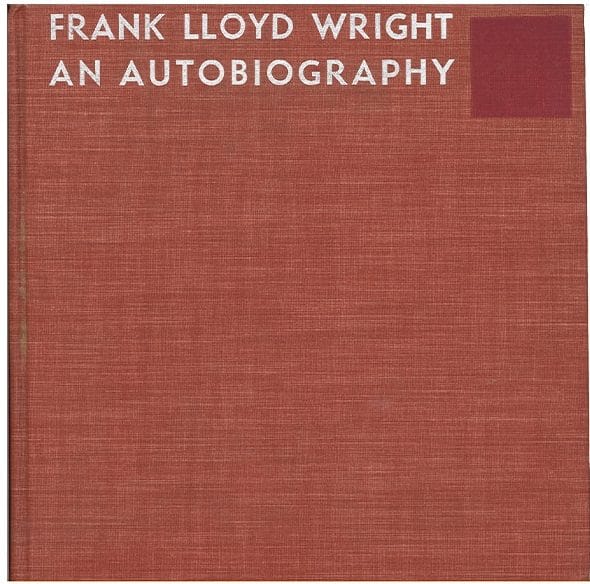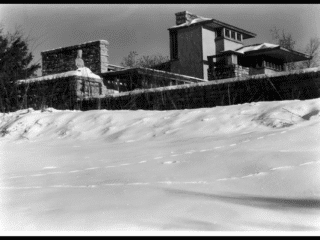
Taste and Autobiography
Frank Lloyd Wright | Mar 30, 2018
In “Taste and Autobiography,” Frank Lloyd Wright explains why he wrote “An Autobiography.”
This brief article is in the nature of an apologia by Wright, who explains why he wrote his autobiography (New York: Longmans Green, 1932). Perhaps this was written in response to a particular criticism of the book. Yet, for the most part, the critics praised the work for its candor and his struggle to develop an architecture more in keeping with the precepts of a democratic faith in the United States. [Published in The Chicagoan, April 1932]
Introduction and excerpt taken from Frank Lloyd Wright Collected Writings, Vol. III, edited by Bruce Brooks Pfeiffer.
I am inclined to believe that Autobiography says good-bye to “taste.” The nature of the genuine thing is not and will not be in keeping with out best standards of private life—no matter how reticent. Why Autobiography if reticent? Why not leave the matter to such Biographers as come along?
A man’s “reticent” Autobiography would be, really, only Biography biased by himself, or an essay on himself. The least any autobiographer can do to square himself with his readers or himself is to lay his cards—his life in this case—on the table, so to speak. No light matter. His opus must have the authority of his own intimacy with his own experience—not only pro but con.
No doubt the poor man who writes about himself would do well not to inform the general reader of personal matters in which only intimates know he is askew or aslant or he himself knows how ignoble or inglorious he is . . . . And harder, by far, others are involved the moment he takes his pen in hand, even though he concerns himself only with the ambiguity he is pleased to call his own soul.
I do not mean the autobiographer should bawl the truth. No, the poor dupe is chiefly familiar with facts anyway. He is, in spite of himself, in his readers’ hands so far as this affair goes with truth, but he should be fair with his facts or not start. That is what is the matter with Autobiography as a work of art. And why usually it is, instead, recitation, defamation, expurgation or dramatization with some axe to grind.
All this together in some degree, is autobiography, seldom simple, never quite candid.
Then why write one?
Well, I think only one who has been gratuitously twisted and maimed by publicity, or deliberately misrepresented to his fellows, and in consequence has had to hunchback his way through life, or one who has given his life, freely, to a great cause, or one who can make his life, such as it is, honestly interesting, useful or beautiful to his fellows, should be allowed to try.
If he can do all these—and this is true autobiographic ambition—his enterprise is ruined by the “taste” that run as as the product of pride and current social standards unless his life has been lived in “taste.”
Mine has not.
Social standards, even as to decency, change.
They are always changing.
The genuine Autobiography stays.
As for the squirming of the victims, victimized by propinquity, relationship or imagination with the hapless one urged to unseemliness and indiscretion to get the hump off his back, or get it on straight, or get an idea over, or simply make something beautiful, well, if he has been careful with his sense of proportion in the circumstances to be just to them, what can they do but squirm and sue, the autobiographer being what he is? The shame of any hurt is not theirs. It is his. They suffer through him.
Good taste!
Ruefully this unwilling penman conscientiously bids you good-bye. When my own taste would move me to leave something out, my conscience would say, put it in. When conscience would prick and say “take it out,” the artist in me would say “no, it is essential to the balance of the whole.”
And I confess the artist has so far run with the man that when I, the man, protest, I stand a small chance of winning in any argument as to ways and means or even ends. To sustain this attempt there is only the artist’s sense of right, that has destroyed so many a man, good and bad, and a feeling that perhaps is no more reliable where Autobiography is concerned than in matters of Art and Architecture.




